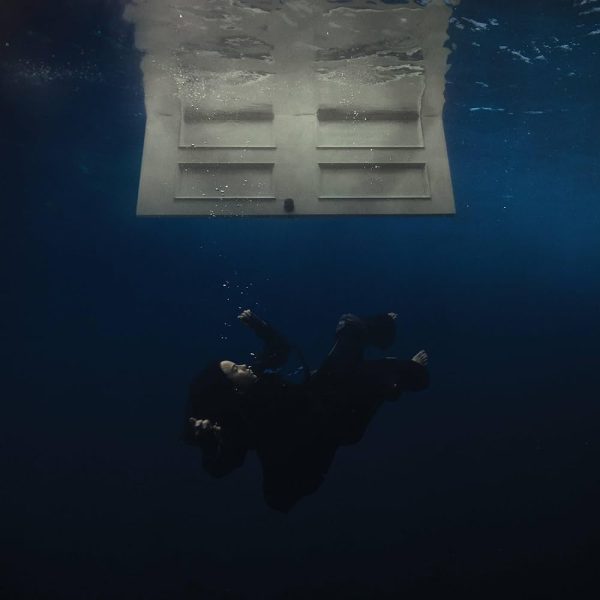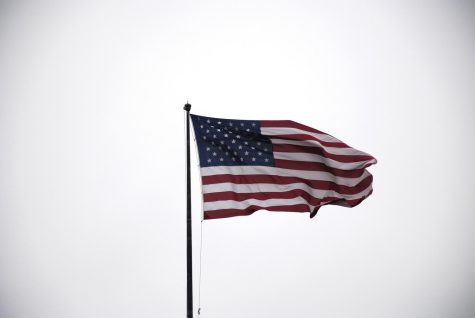“I Pledge Allegiance…NOT”
“Pledge allegiance to the flag that neglects us” -Tupac

I have been standing and speaking at a flag since I was in kindergarten, but it’s not a relatively new ritual. Since 1892, students have been reciting the vow of patriotism in their classrooms. The first version, written by socialist minister Francis Bellamy, was a total of 23 words, and read:
“I pledge allegiance to my Flag and to the Republic for which it stands—one nation indivisible—with liberty and justice for all.”
I admire the poetry, and the imagination to paint the idea of such a beautiful, united country. On the surface, it’s cute. The deeper history is what really bothers me.
It first appeared in Youth’s Companion Magazine in Boston. In 1891, Francis Bellamy was hired as a promotional employee, and was put in charge of setting up a patriotic program for U.S. schools that would celebrate the 400 year commemoration of Columbus’s supposed arrival to the New World. Fast forward to the 21st century, and we have a rather solid understanding and agreement that Columbus did not discover the “New World”. Land on numerous islands, he did, but discover America, he did not. It is because of Bellamy’s convincing to President Benjamin Harrison that the “holiday” ever existed in the first place.
Even so, the celebration is how the first pledge came to be. Bellamy was instructed to compose the speech for schoolchildren to recite in unison. At the time, The Civil War, merely 26 years passed, was still a fresh cut wound in the minds of Americans. In light of this, he believed the pledge would be most purposeful if it invoked allegiance. Bellamy spent a rough 2 hours scribbling away and racking his brain. 23 simple words would become an institution for American citizens.
But Bellamy had an underlying motive when writing the Pledge of Allegiance that is often hidden from history classrooms. The pledge sought to give identity to a developing nation as it negotiated it’s relationship between race and citizenship. He, and other Americans, strived to promote nativism and the Anglo-Saxon Protestant “Americanism” heavily stressed during this time. Ironic, considering everyone who lived in America had descended from immigrants. Hence, they were not native. Nevertheless, the country desired strict immigration laws and to prevent the surge of immigrants of Eastern and Southern Europe. They wanted to maintain a white culture, and they feared any outside forces that might disrupt that vision.
The pledge did not take it’s spot in public schools until 1942. A year later, Jehovah’s Witnesses argued that the Bible did not want them to take any oaths or pledge allegiance to someone other than Jesus. The Supreme Court promptly ruled that the pledge should never be a requirement for any school child, as it overshadowed the principle of free speech. I, for one, am thankful.
The most memorable, but controversial edit made to the Pledge of Allegiance were the words “under God”. A campaign of a Catholic fraternal (meaning men) organization, lobbied Congress and in 1953, the bill was approved by President Eisenhower. As a non-christian, the first thing that comes to mind when I hear these words is, what happened to the separation of church and state? Does this not make it excusable for Christians to label America as a religiously established country? And a good argument, they have indeed! It says it right in the most worshiped piece of poetry in our culture.
Well, this also didn’t sit right with plenty of people in 1953. The proponent’s argument said that “under God” was not religiously affiliated. They didn’t see it that way and perhaps there is a difference between religion as an institution, and the belief of sovereignty of God, but that’s a debate for another time. The adversary saw right through the argument of shallow words. Even certain religious groups, including Christians who believed in religious tolerance, took issue with the decision. Our first amendment clearly spells out freedom of religion. How are we to include every established religion, when we are excluding over half of them? What exactly are we instilling in children, whose brains aren’t developed enough to explore and choose a preferred religion, let alone understand the weight of an oath to a country they’ve existed in for a mere 5 years?
Before 1943, students were required to recite the pledge or national anthem in public schools. Now, according to the Supreme Court, compulsory patriotism is deemed unconstitutional. No one can be required, forced, or penalized for standing or not standing for the pledge or anthem under the First Amendment. In recent years, refusing to stand for the Pledge of Allegiance has become a form of protest. In November of 2017, 17 year old India Landry was expelled from her Houston high school for refusing to stand for the pledge in protest of police brutality.
In 2016, NFL quarterback Colin Kaepernick kneeled for the national anthem in protest against police violence against black victims; an action in which former President Donald Trump called “disrespecting our flag… and disrespecting our country.” He then suggested that a rule for mandatory standing for the anthem should be put in place.
I think it’s also relevant to compare other democratic countries to the U.S.. U.K. primary schools do not recite a pledge in the morning, and after speaking to several Australian and English students my age, I understand how it looks to an outsider. Point blank — it’s creepy. It summons flashbacks of Nazi Germany and dictators. Here are a few questions they have for us:
Why does it say God? Aren’t you a secular country?
Why are kids saying it? They don’t understand it.
Why do you need it? American is inherently free, right?
Do you know who we do bear a fair resemblance to? North Korea. North Korea is among a few countries that place loyalty for their country and leader, Kim Jong Un, in the number one priority slot. The country is under the literal confines of communism at its finest, and every morning the citizens participate in Kim Jong Un’s Morning Ritual. They are awoken by an eerie and disturbing song blasted all across the city. It is titled, “Where Are You Dear General”.
It’s not a stretch to say that America has a rather bizarre brand of “patriotism” that scarily borders on nationalism.
Nationalism: ideology based on the idea that the individual’s loyalty and devotion to the nation-state surpass other individual or group interests.
This is reflected in the Donald Trump supporting party. These “fans” elected a man to do a job for them and to make a better country. “Make America Great Again” reads his slogan. But in the midst of narcissism and ego, is an overwhelming, almost unsettling love for a country that is more divided than it’s ever been. There is a big difference between patriotism, and nationalism, characterized by a loss of perspective. It is safe to say that America has lost sight of its current place in the world.
In light of this, I question the credibility of the line “indivisible”. After the injustice for George Floyd, Breonna Taylor, and countless people of color, I question the credibility of the line, “liberty and justice for all”.
I question if these words have become more of a habit than a pledge, and if the subtle notes of nationalism are more detrimental to the true values of our country than they are representing.
Like I said, I have been standing to take this pledge for at least 10 years. Every morning I would participate and never knew why. It was only in the past 4 years that I became uncomfortable and hyper aware of what I was doing. Nobody wants to be that weird rebellious kid that hates America, but I wanted to be informed. Now, I’m okay being that kid.
So all I ask is that the next time you stand for the Pledge of Allegiance, you ask yourself what you’re standing for, and recognize the weight of the words you speak. Do you do it with intent, or out of obligation and fear of being ostracized? Does it really mean all the things you were told it meant?

Devyn Marie Rowan is a senior in her second year working for The Ridge Review; she's our Lead Editor. She has a passion for writing in order to connect with those around her. She wants to use...







caitlin bailey • Feb 19, 2021 at 9:39 AM
I love this piece–it’s poetic and truthful and draws important questions that we all need to answer. I love how you touched on the history of the pledge, and why it inherently opposes the first amendment. I’m so glad you wrote it; I really enjoyed seeing your perspective and I related to it in the sense that I, too, never thought about what it truly meant (or what it looked like to the outside world) before these past few years. Wonderful piece, luv 🙂